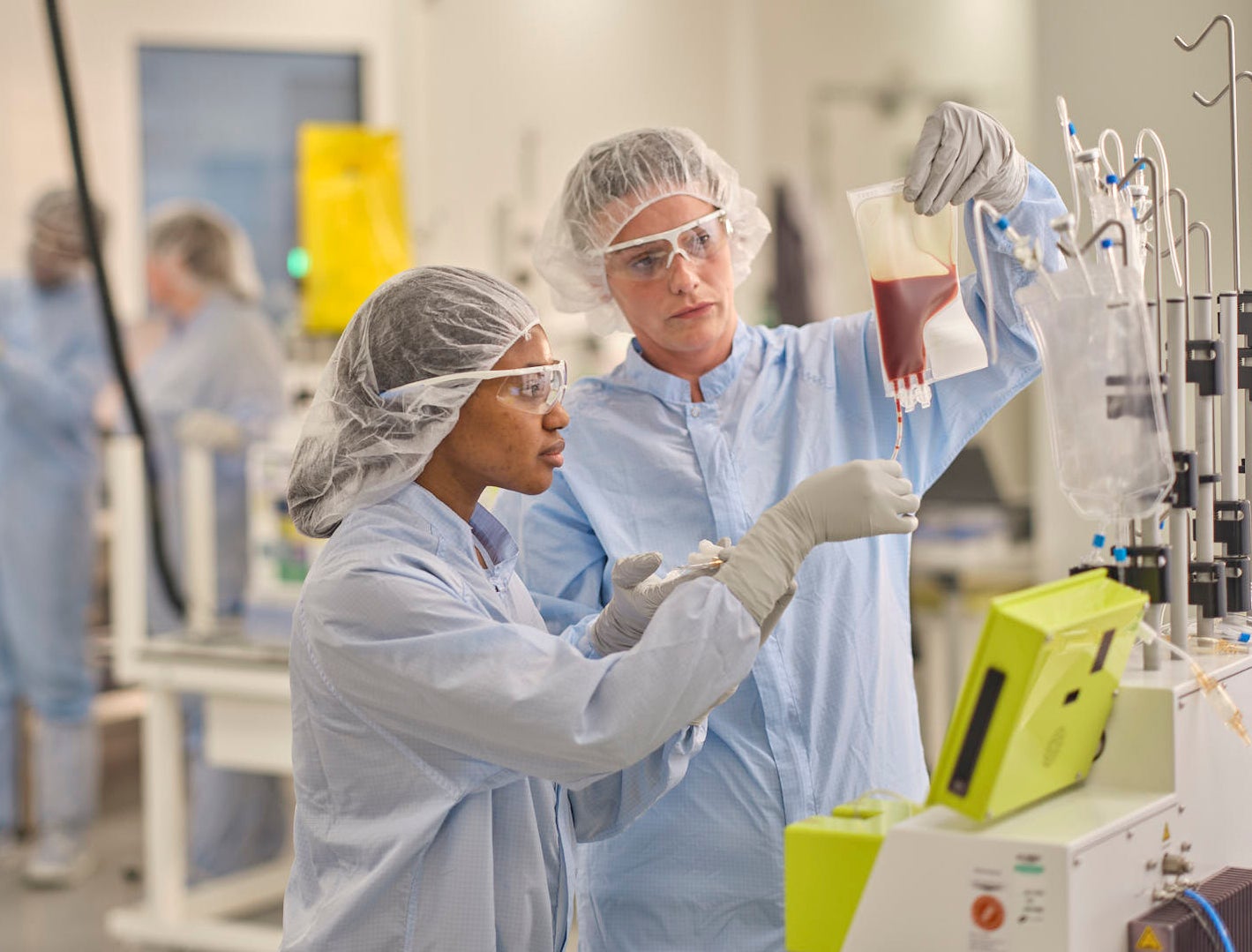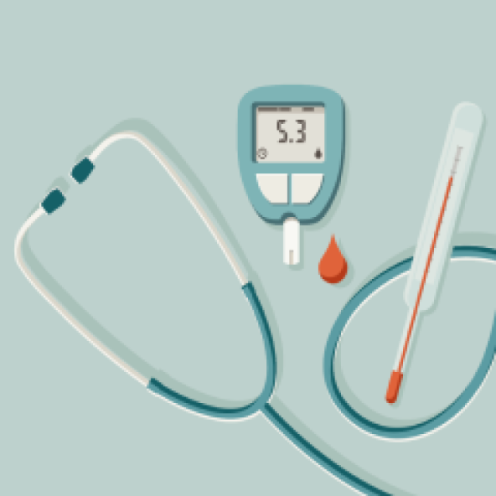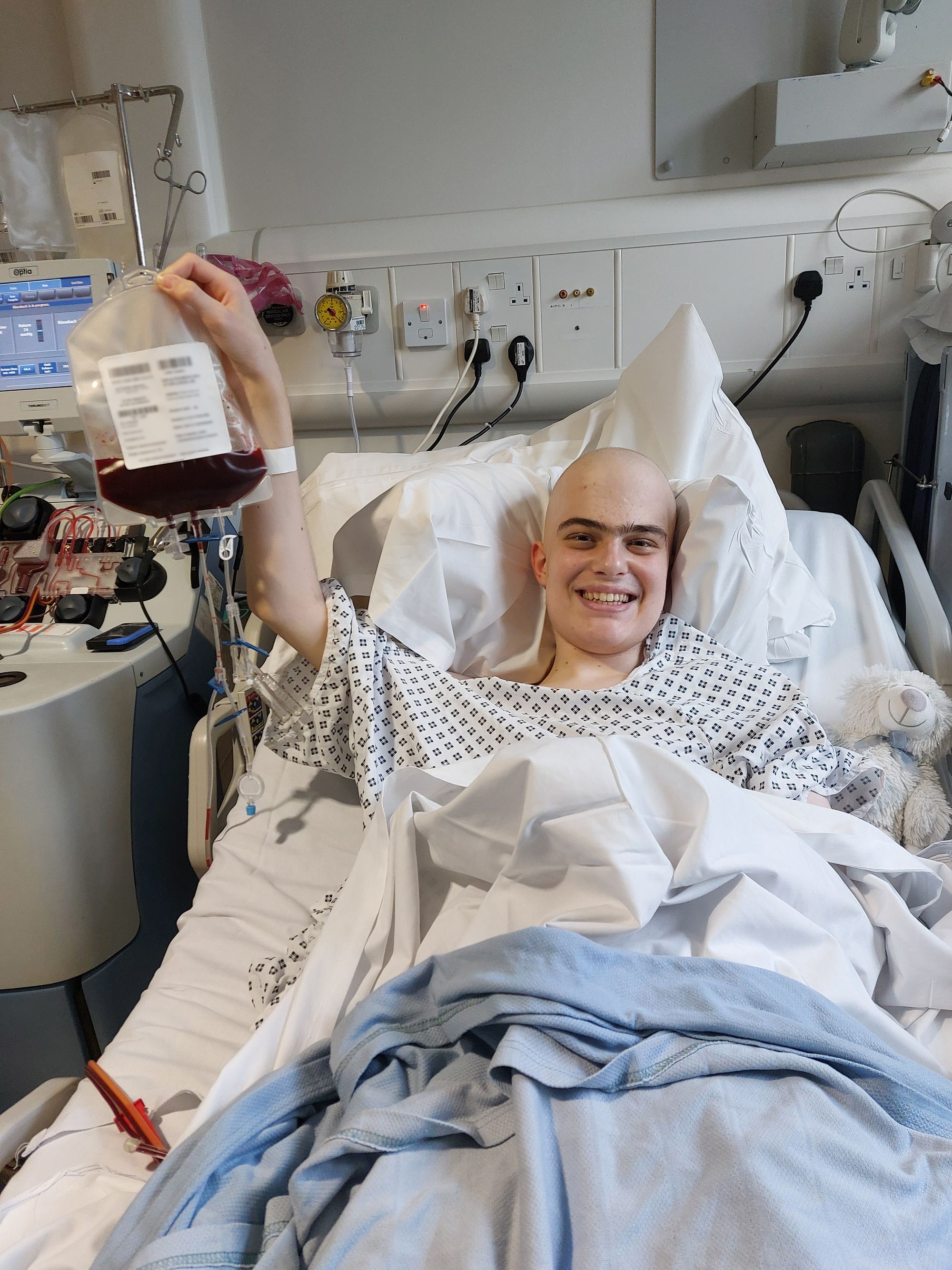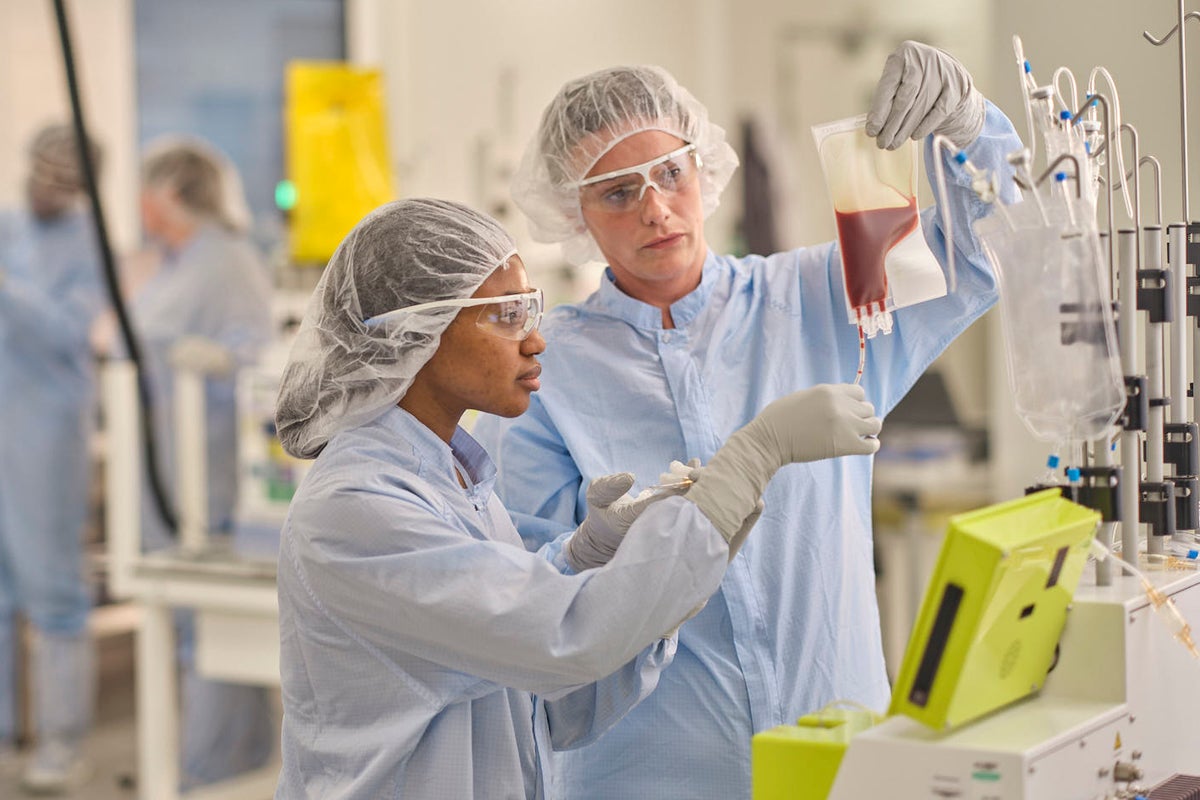- News
- Health
‘The biggest thing it offers is hope,’ says patient involved in clinical trial which cured cancer in significant portion of leukaemia sufferers
Harry CockburnTuesday 25 November 2025 00:07 GMTComments open image in galleryA "next generation" immunotherapy treatment that has the potential to cure leukaemia has been given NHS approval (Autolus)
open image in galleryA "next generation" immunotherapy treatment that has the potential to cure leukaemia has been given NHS approval (Autolus)
Sign up for our free Health Check email to receive exclusive analysis on the week in health
Get our free Health Check email
Get our free Health Check email
 Email*SIGN UP
Email*SIGN UPI would like to be emailed about offers, events and updates from The Independent. Read our Privacy notice
A radical “living medicine” treatment which has the potential to cure leukaemia has been given NHS approval.
Obe-cel, hailed as a “next generation” immunotherapy treatment, works by genetically modifying cells to enable the body’s own immune system to recognise and attack cancer.
A clinical trial of 94 people found that 77 per cent given the treatment went into remission, with more than half of those then showing no signs of detectable cancer after three and a half years.
Obe-cel, also known as Aucatzyl, which only needs to be administered to patients once and has fewer side effects than other treatments, is now recommended by the National Institute for Health and Care Excellence (Nice), for those aged 26 or over.
Nice said the treatment could help more than 150 people over the next three years who have relapsed or refractory B-cell acute lymphoblastic leukaemia (ALL), and currently have limited treatment options.
The treatment is based on CAR T-cell treatment therapy, in which a specially engineered immune cell is designed to hunt down and destroy cancer cells. In the lab, scientists take T-cells from a patient’s blood and add a new gene which equips the T-cells with a chimeric antigen receptor (CAR), which helps them recognise and attack cancer cells they normally wouldn’t detect.
Those receiving the new treatment will be administered two doses of Obe-cel intravenously, 10 days apart, at selected specialist CAR T-cell centres across England.
 open image in galleryHarry Brown from Harrogate was given Obe-cel in 2024 as part of a clinical trial (Family handout/NHS England)
open image in galleryHarry Brown from Harrogate was given Obe-cel in 2024 as part of a clinical trial (Family handout/NHS England)Professor Peter Johnson, NHS national clinical director for cancer, said: “This cutting-edge therapy has shown real promise in trials and could give patients with this aggressive form of leukaemia a chance to live free from cancer for longer – and, for some, it could offer the hope of a cure.
“This ‘living medicine’ boosts a patient’s own immune system and then guides T-cells towards the cancer to kill it.”
He added: “It is fantastic to have another pioneering option available on the NHS, adding to our range of CAR T-cell therapies which are helping people with blood cancers live longer, healthier lives.”
Harry Brown, a 19-year-old student from Harrogate, who was treated with Obe-cel as part of a clinical trial in 2024, has spoken of the impact the new drug has had on his life.
He said: “I feel so lucky to have had access to such a wondrous treatment.
“Not only did it work better than my doctors thought it would, it worked without many of the horrible side-effects you can get from other treatments.
“The biggest thing it offers is hope. When you’re facing a situation like mine, hope is the most valuable thing you can have.”
 open image in gallery‘Hope is the most valuable thing you can have’, said Mr Brown, who was part of the clinical trial of Obe-cel (Family handout/NHS England)
open image in gallery‘Hope is the most valuable thing you can have’, said Mr Brown, who was part of the clinical trial of Obe-cel (Family handout/NHS England)The new treatment was developed by Autolus, a University College London spinout company. Dr Claire Roddie, UCL Hospital consultant haematologist and associate professor at the UCL Cancer Institute, said: “I am delighted to hear of Nice’s decision.
“Many more patients now stand to benefit from this CAR T-cell therapy on the NHS and we are still working to widen its application. The many people involved in this work can feel immensely proud of this achievement, which will help save the lives of many more patients.”
Health minister, Ashley Dalton, said: “This pioneering treatment is excellent news for patients and their families, demonstrating how the NHS is at the forefront of medical innovation.”
Fiona Hazell, chief executive at Leukaemia UK, said: “We are delighted that this therapy will be available on the NHS and this is a significant step forward in expanding treatment options for people living with leukaemia.”
More about
LeukaemiaCancertreatmentNHSNiceJoin our commenting forum
Join thought-provoking conversations, follow other Independent readers and see their replies
Comments


